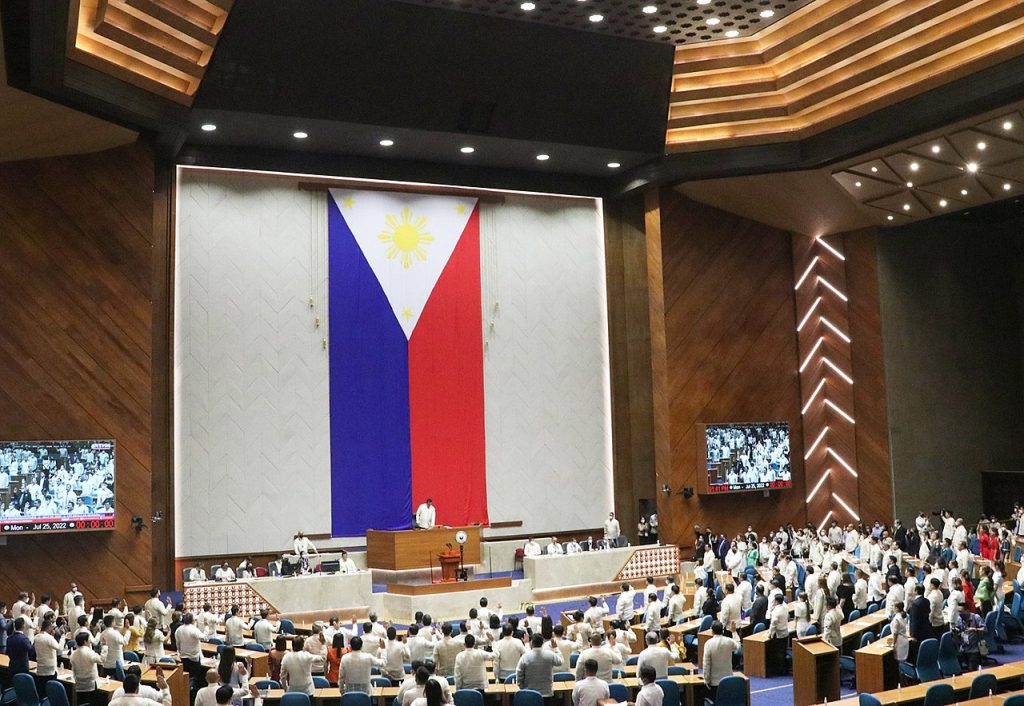A committee of the Philippine Parliament has considered a bill to decriminalize the production, sale, and consumption of cannabis in the Philippines. The proposal to legalize cannabis in the Philippines is still in its infancy and is not among the Marcos administration’s priority bills. The Dangerous Drugs Commission is also looking to conduct a more thorough review of the subject.
Cannabis in the Philippines: Legalization Back on the Table


A committee of the Philippine Parliament has considered a bill to decriminalize the production, sale, and consumption of cannabis in the Philippines.
To follow the latest updates in this story, along with other legalization news from around the world, download our free cannabis news app.
The Debate to Legalize Cannabis in the Philippines
The lower house’s Committee on Dangerous Drugs, chaired by Robert Ace Barbers, proposed to form a technical working group with the Committee on Health to flesh out the bill to legalize cannabis in the Philipines, filed by former House Speaker Pantaleon Alvarez.
In his speech, Alvarez used colorful language to describe the current state of cannabis in the Philipines.
“The classification of cannabis in the Philipines and its derivatives as a dangerous drug is bullshit. It doesn’t make sense. And we need to correct this nonsense,” he said on Tuesday, 21 February.
“If the government allows harmful products like alcoholic beverages, carcinogenic cigarettes, and sugary drinks that promote diabetes, why can’t we decriminalize the production and sale of a substance that is less harmful, has many benefits, and can be a source of revenue for the government?” questioned Alvarez.
The former House leader also argued that the legalization of cannabis in the Philippines would generate wealth that the government could use for its programs and projects.
“We can decriminalize cannabis in the Philipines and its derivatives, and we can collect billions in taxes on its production and sale. We can use the extra revenue to build more roads and bridges, more classrooms and hospitals, and more public services in pursuit of the common good. We can also use the additional taxes collected to help our country pay off the deep debt created by the economic crisis during the pandemic,” said Alvarez.
What the Bill Says
Republic Act 9165, also known as the amended Dangerous Drugs Act, classifies cannabis as a dangerous drug or substance.
Persons convicted of cultivating cannabis in the Philipines, or possessing 10 grams of cannabis resin or cannabis resin oil, as well as 500 grams or more of cannabis, are subject to a fine of up to P10 million and life imprisonment.
Alvarez’s proposal, House Bill 6783, seeks to exclude cannabis, cannabis resin and extracts, and cannabis tinctures from the list.
Batanes representative Ciriaco Gato expressed concern that removing cannabis from the list would pave the way for the recreational use of cannabis in the Philippines.
“I think that if alcohol and tobacco are really bad, cannabis is bad too. As for which one is more harmful, I think it depends on the quantity,” Gato said, arguing that one variety of cannabis has negative effects. “Cannabis, just like alcohol, has certain effects from a medical and social perspective.”
Perspectives on Cannabis in the Philippines
The proposal to legalize cannabis in the Philippines is still in its infancy and is not among the Marcos administration’s priority bills. The Dangerous Drugs Commission is also looking to conduct a more thorough review of the subject.
“I would like to listen to the opinions of all the members first and the opinions of the experts,” Barbers told Rappler when asked if he would support the measure to legalize cannabis in the Philippines and possibly defend it in the House plenary.
“A lot of discussions will have to take place because if the intention of the proposer is to remove it from the list, there must be reasons why they want to remove it,” he added. “Before we pursue the idea of making it available for sale, it has to be removed [from the list of dangerous drugs].”
In addition to the bill filed by Alvarez, numerous bills to legalize medical cannabis in the Philippines have been submitted to the health committee. The house, led by then-President Gloria Macapagal Arroyo in the 17th Congress, already approved a bill to legalise medical cannabis in the Philippines, but the proposal did not pass the Senate.
—
(Featured image by House of Representatives of the Philippines (Public Domain) via Wikimedia Commons)
DISCLAIMER: This article was written by a third-party contributor and does not reflect the opinion of Hemp.im, its management, staff, or its associates. Please review our disclaimer for more information.
This article may include forward-looking statements. These forward-looking statements generally are identified by the words “believe,” “project,” “estimate,” “become,” “plan,” “will,” and similar expressions. These forward-looking statements involve known and unknown risks as well as uncertainties, including those discussed in the following cautionary statements and elsewhere in this article and on this site. Although the company may believe that its expectations are based on reasonable assumptions, the actual results that the company may achieve may differ materially from any forward-looking statements, which reflect the opinions of the management of the company only as of the date hereof. Additionally, please make sure to read these important disclosures.
First published in Newsweed, a third-party contributor translated and adapted the article from the original. In case of discrepancy, the original will prevail.
Although we made reasonable efforts to provide accurate translations, some parts may be incorrect. Hemp.im assumes no responsibility for errors, omissions or ambiguities in the translations provided on this website. Any person or entity relying on translated content does so at their own risk. Hemp.im is not responsible for losses caused by such reliance on the accuracy or reliability of translated information. If you wish to report an error or inaccuracy in the translation, we encourage you to contact us.



Comments are closed for this post.